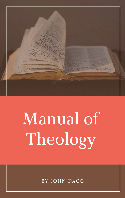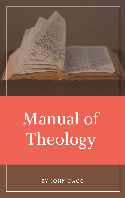Ads
Contents
- 1 Biblical Overview of Covetousness
- 1.1 Easton’s Bible Dictionary
- 1.2 International Standard Bible Encyclopedia
- 1.3 Baker’s Evangelical Dictionary BED
- 1.4 David Cox’s Topical Dictionary
- 1.5 Hastings Dictionary
- 1.6 Bucks Dictionary
- 1.7 BibleHub Thesarus
- 1.8 TCR Thompson Chain Reference
- 1.9 Learning Jesus – Perils of Covetousness
- 1.9.1 The law against covetousness is clearly and repeatedly stated in both the Old and New Testaments.
- 1.9.2 Keep Yourselves from all Covetousness
- 1.9.3 Just What is Covetousness?
- 1.9.4 Covetousness is a perverted sense of values.
- 1.9.5 How Shall We Flee These Things?
- 1.9.6 More Posts from False Prophet-Teacher Category
Biblical Overview of Covetousness
Taken from Biblehub.com see more there.
Easton’s Bible Dictionary
A strong desire after the possession of worldly things (Colossians 3:5; Ephesians 5:5; Hebrews 13:5; 1 Timothy 6:9, 10; Matthew 6:20). It assumes sometimes the more aggravated form of avarice, which is the Mark of cold-hearted worldliness.
International Standard Bible Encyclopedia
COVETOUSNESS
kuv’-et-us-nes: Has a variety of shades of meaning determined largely by the nature of the particular word used, or the context, or both. Following are some of the uses:
(1) To gain dishonestly (batsa`), e.g. the King James Version Exodus 18:21Ezekiel 33:31.
(2) The wish to have more than one possesses, inordinately, of course (pleonexia), e.g. Luke 12:15 1 Thessalonians 2:5.
(3) An inordinate love of money philarguros, the King James Version Luke 16:14 2 Timothy 3:2; philarguria, 1 Timothy 6:10; negative in Hebrews 13:5, the King James Version.
Covetousness is a very grave sin; indeed, so heinous is it that the Scriptures class it among the very gravest and grossest crimes (Ephesians 5:3). In Colossians 3:5 it is “idolatry,” while in 1 Corinthians 6:10 it is set forth as excluding a man from heaven. Its heinousness, doubtless, is accounted for by its being in a very real sense the root of so many other forms of sin, e.g. departure from the faith (1 Timothy 6:9, 10); lying (2 Kings 5:22-25); theft (Joshua 7:21); domestic trouble (Proverbs 15:27); murder (Ezekiel 22:12); indeed, it leads to “many foolish and hurtful lusts” (1 Timothy 6:9). Covetousness has always been a very serious menace to mankind, whether in the Old Testament or New Testament period. It was one of the first sins that broke out after Israel had entered into the promised land (Achan, Jos 7); and also in the early Christian church immediately after its founding (Ananias and Sapphira, Acts 5); hence, so many warnings against it. A careful reading of the Old Testament will reveal the fact that a very great part of the Jewish law-such as its enactments and regulations regarding duties toward the poor, toward servants; concerning gleaning, usury, pledges, gold and silver taken during war-was introduced and intended to counteract the spirit of covetousness.
Eerdmans maintains (Expos, July, 1909) that the commandment, “Thou shalt not covet thy neighbor’s house” (Exodus 20:17), meant to the Israelite that he should not take anything of his neighbor’s possessions that were momentarily unprotected by their owner. Compare Exodus 34:23. Thus, it refers to a category of acts that is not covered by the commandment, “Thou shalt not steal.” It is an oriental habit of mind from of old that when anyone sees abandoned goods which he thinks desirable, there is not the least objection to taking them, and Exodus 20:17 b is probably an explanation of what is to be understood by “house” in Exodus 20:17 a.
Examples of covetousness: Achan (Joshua 7); Saul (1 Samuel 15:9, 19); Judas (Matthew 26:14, 15); Ananias and Sapphira (Acts 5:1-11); Balaam (2 Peter 2:15 with Jude 1:11).
William Evans
Baker’s Evangelical Dictionary BED
Strong desire to have that which belongs to another. It is considered to be a very grievous offense in Scripture. The tenth commandment forbids coveting anything that belongs to a neighbor, including his house, his wife, his servants, his ox or donkey, or anything that belongs to him (Exod 20:17). Jesus listed covetousness or greed along with many of the sins from within, including adultery, theft, and murder, which make a person unclean (Mr 7:22). Paul reminded the Ephesians that greed or covetousness is equated with immorality and impurity, so that these must be put away (5:3). A covetous or greedy person is an idolator (5:5) and covetousness is idolatry (Col 3:5). James warns that people kill and covet because they cannot have what they want (4:2).
Covetousness, therefore, is basic to the commandments against murder, adultery, stealing, and lying. Those who accept bribes are coveting, leading to murder (Eze 22:12). Coveting a neighbor’s wife is a form of adultery (Exod 20:17). Achan admitted to coveting a robe and silver and gold, so he stole them, which was a sin against the Lord (Jos 7:20-22). Gehazi, the servant of Elisha, coveted the property of Naaman so much that he lied to get what he wanted from Naaman the leper (2 Ki 5:19-25) and was struck with leprosy. Proverbs warns that a covetous person brings trouble to his family (15:27). Thus covetousness is the root of all kinds of sins, so that Jesus gave the warning, “Be on your guard against all kinds of greed” (Luke 12:15).
William J. Woodruff
See also Envy
——————————————————————————–
[N] indicates this entry was also found in Nave’s Topical Bible
[T] indicates this entry was also found in Torrey’s Topical Textbook
[E] indicates this entry was also found in Easton’s Bible Dictionary
David Cox’s Topical Dictionary
• Comes from the heart
Mark 7:22; Mark 7:23
• Engrosses the heart
Ezek 33:31; 2Pet 2:14
• Is idolatry
Eph 5:5; Col 3:5
• Is the root of all evil
1Tim 6:10
• Is never satisfied
Eccl 5:10; Hab 2:5
• Is vanity
Ps 39:6; Eccl 4:8
• Is inconsistent
– In saints
Eph 5:3; Heb 13:5
– Specially in ministers
1Tim 3:3
• Leads to
– Injustice and oppression
Prov 28:20; Mic 2:2
– Foolish and hurtful lusts
1Tim 6:9
– Departure from the faith
1Tim 6:10
– Lying
2Kgs 5:22-25
– Murder
Prov 1:18; Prov 1:19; Ezek 22:12
– Theft
Josh 7:21
– Poverty
Prov 28:22
– Misery
1Tim 6:10
– Domestic affliction
Prov 15:27
• Abhorred by God
Ps 10:3
• Forbidden
Exod 20:17
• A characteristic of the wicked
Rom 1:29
• A characteristic of the slothful
Prov 21:26
• Commended by the wicked alone
Ps 10:3
• Hated by saints
Exod 18:21; Acts 20:33
• To be mortified by saints
Col 3:5
• Woe denounced against
Isa 5:8; Hab 2:9
• Punishment of
Job 20:15; Isa 57:17; Jer 22:17-19; Mic 2:2; Mic 2:3
• Excludes from heaven
1Cor 6:10; Eph 5:5
• Beware of
Luke 12:15
• Avoid those guilty of
1Cor 5:11
• Pray against
Ps 119:36
• Reward of those who hate
Prov 28:16
• Shall abound in the last days
2Tim 3:2; 2Pet 2:1-3
• Exemplified
– Laban
Gen 31:41
– Achan
Josh 7:21
– Eli’s sons
1Sam 2:12-14
– Samuel’s sons
1Sam 8:3
– Saul
1Sam 15:9; 1Sam 15:19
– Ahab
1Kgs 21:2-4
– Gehazi
2Kgs 5:20-24
– Nobles of the Jews
Neh 5:7; Isa 1:23
– Jewish people
Isa 56:11; Jer 6:13
– Babylon
Jer 51:13
– Young man
Matt 19:22
– Judas
Matt 26:14; Matt 26:15; John 12:6
– Pharisees
Luke 16:14
– Ananias &c
Acts 5:1-10
– Felix
Acts 24:26
– Balaam
2Pet 2:15; Jude 1:11
Hastings Dictionary
Covetousness
COVETOUSNESS.—In the Bible, covetousness is a crime. In the Ten Commandments it is put under the ban along with murder, adultery, theft, and slander (Exo 20:17, Deu 5:21). Achan was guilty of this crime, and was stoned to death (Jos 7:16-26). Every occurrence of the word or the thing in the OT is connected with a prohibition or a curse (Psa 10:3; Psa 119:36, Pro 21:26; Pro 28:16, Isa 57:17, Hab 2:9). In the NT adultery and covetousness are usually classed together (1Co 5:11; 1Co 6:9-10, Col 3:5, 2Pe 2:14). This conjunction of sensual sin and love of money probably rests upon the authority of Jesus (Mar 7:21-22). Jesus and the Apostles declared that the worshipper of Bacchus and the worshipper of Venus and the worshipper of Mammon belong to one and the same class. Grasping avarice is as incompatible with the spirit of self-sacrifice taught in the NT as is the selfish indulgence in drink or the grosser indulgence in vice. The Bible puts the covetous man in the same category with the murderer and the thief. The Christian Church needs to study anew the Bible teaching concerning covetousness, as found in Jer 22:17, Mic 2:2, Luk 12:15, Rom 7:7, Eph 5:3; Eph 5:6, 1Ti 6:10, Heb 13:5, and other passages. No covetous man has any inheritance in the Kingdom of God.
D. A. Hayes.
Bucks Dictionary
An unreasonable desire after that we have not, with a dissatisfaction with what we have. It may farther be considered as consisting in,
1. An anxious carking care about the things of this world.
2. A rapacity in getting.
3. Too frequently includes sinister and illegal ways of obtaining wealth.
4. A tenaciousness in keeping. It is a vice which marvellously prevails upon and insinuates into the heart of man, and for these reasons: it often bears a near resemblance to virtue; brings with it man plausible reasons; and raises a man to a state of reputation on account of his riches. “There cannot be, ” as one observes, “a more unreasonable sin than this. It is unjust; only to covet, is to wish to be unjust. It is cruel: the covetous must harden themselves against a thousand plaintive voices. It is foolish: it destroys reputation, breaks the rest, unfits for the performance of duty, and is a contempt of God himself: it is unprecedented in all our examples of virtue mentioned in the Scripture. One, indeed, spoke unadvisedly with his lips; another cursed and swore; a third was in a passion; and a fourth committed adultery; but which of the saints ever lived in a habit of covetousness? Lastly, it is idolatry, Col.3.
5. the idolatry of the heart; where, as in a temple, the miserable wretch excludes God, sets up gold instead of him, and places that confidence in it which belongs to the Great Supreme alone.” Let those who live in the habitual practice of it consider the judgments that have been inflicted on such characters, Jos 7:21. Act 5:1-42 :; the misery with which it is attended; the curse such persons are to society; the denunciations and cautions respecting it in the Holy Scripture; and how effectually it bars men from God, from happiness, and from heaven. Scott’s Essays, 72, 73. South’s Serm., vol. 4: ser. 1; Robinson’s Mor. Exercises, ex. iv; Saurin’s Serm., vol. 5: ser. 12. Eng. Trans.
BibleHub Thesarus
Covetousness (22 Occurrences)
…COVETOUSNESS. kuv’-et-us-nes: Has a variety of shades of meaning determined largely
by the nature of the particular word used, or the context, or both. …
/c/covetousness.htm – 18k
Greed (19 Occurrences)
… Keep yourselves from covetousness, for a man’s life doesn’t consist of the
abundance of the things which he possesses.” (See NAS NIV). …
/g/greed.htm – 12k
Covetous (11 Occurrences)
… Mark 7:22 Thefts, covetousness, wickedness, deceit, lasciviousness, an evil eye,
blasphemy, pride, foolishness: (Root in KJV WEY DBY WBS YLT). …
/c/covetous.htm – 9k
Whoredom (58 Occurrences)
… Romans 1:29 having been filled with all unrighteousness, whoredom, wickedness,
covetousness, malice; full of envy, murder, strife, deceit, evil dispositions …
/w/whoredom.htm – 24k
Immorality (38 Occurrences)
… Romans 1:29 being filled with all unrighteousness, sexual immorality, wickedness,
covetousness, malice; full of envy, murder, strife, deceit, evil habits …
/i/immorality.htm – 18k
Sexual (59 Occurrences)
… Romans 1:29 being filled with all unrighteousness, sexual immorality, wickedness,
covetousness, malice; full of envy, murder, strife, deceit, evil habits …
/s/sexual.htm – 23k
Fornication (52 Occurrences)
… Romans 1:29 Being filled with all unrighteousness, fornication, wickedness,
covetousness, maliciousness; full of envy, murder, debate, deceit, malignity …
/f/fornication.htm – 24k
Dealeth (22 Occurrences)
… Jeremiah 6:13 For from the least of them even unto the greatest of them every one
is given to covetousness; and from the prophet even unto the priest every one …
/d/dealeth.htm – 12k
Deceit (160 Occurrences)
… Scripture represented as a companion of many other forms of wickedness, as cursing
(Psalm 10:7), hatred (Proverbs 26:24), theft, covetousness, adultery, murder …
/d/deceit.htm – 35k
Bounty (14 Occurrences)
… for the Christians of Judea is termed a “bounty,” a blessing, liberally given:
“and not of extortion” (the King James Version “of covetousness,” 2 Corinthians …
/b/bounty.htm – 12k
TCR Thompson Chain Reference
COVETOUSNESS
(1) Condemned
Exod 20:17; Ps 10:3; Prov 28:16; Jer 6:13; Ezek 33:31; Mic 2:2
Hab 2:9; Luke 12:15; Eph 5:3; Col 3:5; 1Tim 3:3; Heb 13:5
–SEE Selfishness (1), SELFISHNESS
(2) Natural Fruits of
–Oppression
Ge 31:41
–Theft
Jos 7:21
–Disobedience
1Sa 15:9
–Robbery
1Ki 20:6
–Meanness
1Ki 21:2
–Unscrupulousness
2Ki 5:20
–Scoffing
Lu 16:14
Learning Jesus – Perils of Covetousness
53
THE PERILS OF COVETOUSNESS
This is a study for the heart; let us take it to heart. The tenth commandment forbids the evil and selfish thoughts and desires, just as the seventh, eighth, and ninth forbid the outward acts that express selfishness and lack of regard for others. The tenth commandment reveals (1) that God judges the motives behind our acts; (2) that many an act that appeared good to men has been rotten by reasons of the lust from which it sprang; (3) that God may condemn a man who is blameless in the sight of men; (4) that sinfulness is not determined only by outward effect of an act in harm to society, but by the state of a man’s heart in relation to God and to His will. If only dishonest getting of money were sin, then covetousness would be only a dangerous state that might lead to sin; but coveting itself is sin—a state of distrust, dishonor and rebellion toward God—idolatry.
The law against covetousness is clearly and repeatedly stated in both the Old and New Testaments.
A very great part of the Jewish law—such as its regulations regarding duties toward the poor, toward servants, concerning gleaning, usury, pledges, gold and silver taken during war—was introduced and intended to counteract the spirit of covetousness.[42]
[42] William Evans, “Covetousness” International Standard Bible. Encyclopedia, Vol. II, edited by James Orr (Grand Rapids: Wm. B. Eerdmans, 1939). P. 733.
This sin was frequently rebuked by the prophets; e.g., Isa. 57:17; Jer. 8:10; Mic. 3:11; Mal. 3:8-10. God’s great displeasure at this sin, its evil effects and severe punishments are shown in such examples as: Achan, in hiding the treasure from Jericho (Jos. 7:1-21); Eli’s sons (1Sa. 2:13-17); Saul, saving booty from the Amalekites (1Sa. 15:9-19); David, coveting Bathsheba (2Sa. 11:2-5); Ahab, desiring Naboth’s vineyard (1Ki. 21:2-16); Gehazi, taking a gift from Naaman (2Ki. 5:20-27).
Keep Yourselves from all Covetousness
John the Baptist preached that repentance should be expressed in sharing what we have with those in need, being content with our wages, no profiteering, and no extortion (Luk. 3:10-14). Jesus taught that the man whose chief concern is with material possessions is a fool (Luk. 12:15-21); that the service of money as a master makes it impossible for one to serve God (Mat. 6:24); that “the cares of this world, deceitfulness of riches, and the lust of other things” choke the life out of the faith of many who otherwise would bear much fruit for God (Mar. 4:19); that to have possessions and to refuse to share with the needy merits eternal torment in flame (Mat. 25:31-46; Luk. 16:19-25); that the indispensable essence of Christian discipleship is self-denial (Mat. 16:24; Luk. 14:33). The urgent command of Christ is that we love one another (Joh. 13:34-35; Joh. 15:12-13; Mat. 5:43-48; Mat. 7:12). Christian love is just the opposite of covetousness (Rom. 13:8-10; Rom. 12:9-15).
Covetousness is classed with the most gross and glaring sins (Eph. 5:3-5), and, like them, is a shameful thing to talk about except as in the Scripture it is “named” in order to teach and warn against its sinfulness. It is called idolatry (Col. 3:5). It excludes men from heaven, and because of it “cometh the wrath of God upon the sons of disobedience” (1Co. 6:10; Eph. 5:5-6; Col. 3:5-6). It is “a root of all kinds of evil” (1Ti. 6:10), causing some to be led astray from the faith, causing many foolish and hurtful lusts (1Ti. 6:9), causing some to teach false doctrines (Tit. 1:11; 2Pe. 2:1; 2Pe. 2:3).
The New Testament requires the church to recognize the symptoms of covetousness in its members and to take account of it with great seriousness. An elder must be “no lover of money” (1Ti. 3:3). Elders or deacons must be “not greedy of filthy lucre” (Tit. 1:7; 1Ti. 3:8). It is one of the sins specified for which a man must be separated from the church if he can not be brought to repentance (1Co. 5:11). The paragraph in 2Th. 3:6-15 discusses how the church should deal firmly with idlers, “spongers” or parasites, even when they have a pious pretext for their “disorderly” conduct.
Just What is Covetousness?
Since it is so far-reaching in its effects, so important to our eternal welfare, we need to know as definitely as possible what covetousness is, what to resist and what to avoid to keep from covetousness. But it is especially dangerous at this point, because it is a subtle thing, deceptive and insidious. It transforms itself into an angel of light, and calls itself “prudence” and other deceptive names. “It is said that St. Francis de Sales received at the confessional a greater number of persons than were ever known to visit one confessor besides, but that he did not remember a single instance in which covetousness had been confessed. No wonder that church censure for covetousness is exceedingly rare,” wrote E. S. Prout. Yet who will say that the sin itself is exceedingly rare? Croskery wrote on this subject: “It is a solemn thought that the most common of all sins is the most serious in God’s sight.”
New Testament words for covetousness mean literally: “Desire to have more,” “set the heart on,” “desire strongly,” “love money,” and “reach after.” Covetousness is a wider concept than “love of money” alone, but that “root of all kinds of evil” is the most common and glaring form of it. Covetousness is selfish desire in general.
But some things are rightly desired, sought after, and longed for by the Christian (Be sure to read 1Co. 12:31; 1Pe. 2:2; 1Ti. 3:1; Mat. 5:6; Col. 3:1-2; Php. 3:12-14). Covetousness is desire for the wrong things: (1) Desire for the possessions of a neighbor. So far from wishing gain at another’s expense, we are to seek and to rejoice at the gain of a neighbor as really as if it were our own (Rom. 12:15; Rom. 15:2; 1Co. 10:24; 1Co. 10:33; 2Co. 12:15). (2) Desire for worldly possessions for their own sake, to the neglect of higher things, or with the result that we will not use them to serve spiritual ends. It is eager anxiety for wealth without regard to God’s glory or our own spiritual good. In Mat. 6:19-34, Jesus was not talking about any form of stealing or seeking gain at a neighbor’s expense, but he was rebuking the man who is concerned chiefly or only with making a living, however honestly. The sin of the rich fool in Luke 12 was not in what he did as much as in what he did not do! Thus covetousness is “desire for proper things carried to an improper degree.” It is also desire to gain anything in an improper manner. Christians are commanded to work for their food (2Th. 3:10), to provide for their own households (1Ti. 5:8), and to work to have wherewith to do good (Eph. 4:28). But in seeking these good and proper material things, we must still put the service of God and spiritual interests first; we must keep our hearts from loving the possessions themselves; we must live in trust, knowing that God Himself has promised to supply our needs (Mat. 6:33; Php. 4:19; especially Heb. 13:5-6).
Covetousness is a perverted sense of values.
Covetousness is misplaced trust, as it is misplaced desire. A, covetous man is an idolater simply because he loves, trusts, and serves money more than he does God; he transfers to riches the love, desire, joy, trust, and labor that he ought to have toward God, and makes money his god. The sin is all the worse because he knows it is no god. We are getting into this terrible sin (1) whenever we think more about how to get money than how to please and glorify God; (2) when we rejoice more in increase of possessions than in righteousness or progress in the kingdom of grace; (3) when our contentment and comfort depend upon worldly success (Php. 4:11-13; 1Ti. 6:6-9); (4) when we will take time off from Christian work or worship to make money, but will not take time off from making money to serve Christ or help ourselves grow spiritually; (5) when we seek the treasures and luxuries of this world, and do not treasure the promises of God concerning the inheritance of the saints; (6) in short, when we seek our own and not the things of Christ.
One of the most shameful forms of covetousness is withholding (hoarding) wealth (little or much) and refusing to use it for good works. This dishonors God who gave the wealth; it distrusts His promises to replenish; it defies His command to put it to use in His name (Luk. 12:33; Luk. 16:9-13; Mar. 16:15; 1Co. 9:14; 2Co. 9:6-11; Gal. 6:6; Rom. 12:13; 1Ti. 6:17-19). It is a terrible thing, for which we all need to repent, that the average church member is stingy, selfish, inhospitable, and without conscience in the matter.
How Shall We Flee These Things?
Pray that you enter not into temptation. Pray that God may help you to remove covetousness from your heart, to cure it of the obsession to receive, and to learn the real truth of Christ’s saying: “In all things I gave you an example, that so laboring ye ought to help the weak, and to remember the words of the Lord Jesus, that he himself said, It is more blessed to give than to receive” (Act. 20:35).
The right use of the money we have is one of the very best ways to teach ourselves to be unselfish about the possessions others have. Seek ways of self-denial (in little things, without boasting or praise) and of fruitful giving. Give—give until it hurts—give until it stops hurting—give until it feels good and leaves one calmly assured that the needs of the future will be met, whatever they may be. Sell what you have and give alms, lay up treasure in heaven. Become ashamed to wish for wealth—don’t talk about it.
“Dug from the mountain side, washed in the glen,
Servant am I, or master of men;
Earn me, I bless you; steal me, I curse you;
Grasp me and hold me—a fiend shall possess you.
Lie for me; die for me; covet me; take me;
Angel or devil, I am what you make me.”
—Author unknown
For Further Study:
See books listed on page 279.
More Posts from False Prophet-Teacher Category
- Why so many Crises Today?
- What is Prophecy?
- What do false prophets want?
- The Fruit of a False Prophet Part 2
- The Concept of Prophet in the Old Testament
- Pastoral Covetousness OT
- Pastoral Covetousness NT
- Overview of Profile of the False Prophet Part 5
- Overview of Profile of the False Prophet Part 4
- Overview of Profile of the False Prophet Part 3

Dagg Manual of Theology (and links to this work in various other formats).
Dagg Manual of Theology (MySword for Android)
Dagg Manual of Theology (theWord Bible Format)
Dagg Manual of Theology (esword format)
Dagg Manual of Theology (PDF Format)






